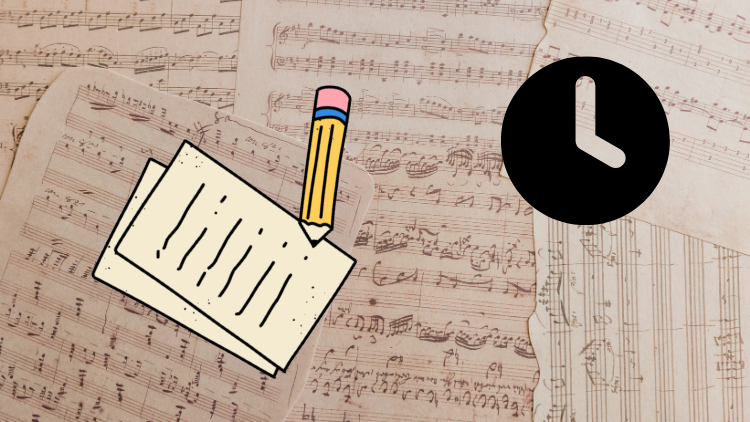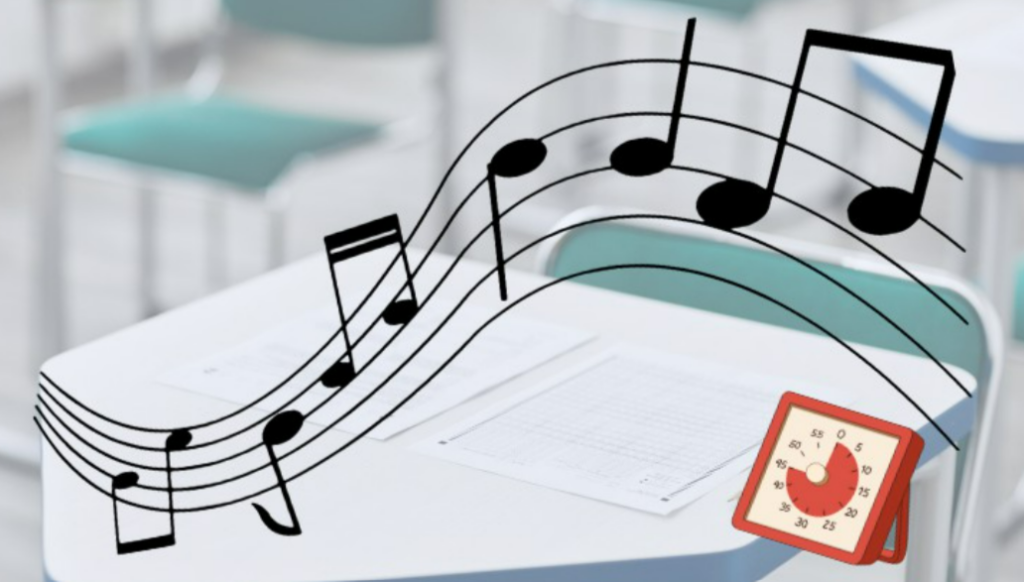Hello, and welcome to the full list of my Udemy Courses. Here, you’ll find all my courses listed in the Udemy Platform.
Topics:
Property Risk Engineering | Mathematics | Chemistry | Technology | Piano | Music Theory | Ear Training (Music)|
Property Risk Engineering
Introduction to Dust Explosion:

This is a topic that I’m seriously interested in when I was a property risk engineer, doing risk surveys. The implications are great, and this hazard is present in many places. This introduction is written to help anyone who wants to understand the risk dust poses, and identify them at their companies or homes. If you are interested in this course, grab it here.
Mathematics
I 🧡 Math when I was in school. Back in JC (Junior College in Singapore), I scored ~90 for my Math common tests and prelims, and I sort of realized that I practiced Math because I like to. The mental challenge and sense of achievement you derived from solving a difficult problem is something I relish.
Here are my courses on Mathematics:
The Introduction to Complex Numbers

Welcome to the world of unreal numbers. Actually, complex numbers are more complex, they are a mixture of real and unreal. These unreal numbers do have serious applications in the world, such as in electronics and signal engineering, telecommunications, and graphic designs. Or if you don’t intend to use them for these applications, learn more about the truth behind square roots of negative numbers.
If you are interested in complex numbers, or just want to find out more, check out this course. It typically costs less than 1 ramen 🍜 in Singapore. Grab it here.
Chemistry
I love Science, and I used to take Special Paper in Chemistry in Junior College (in addition to A level Chemistry). It was an easy subject to me, because everything makes so much sense.
Let me give you an example:
Why doesn’t my cat eat the food? It’s too difficult for the cat to approach her plate, or/ and the food is too hard for her to bite.
Why doesn’t a reaction takes place? It’s too difficult for one reactant to approach another, and/ or the bonds to be broken for the reaction are too strong.
See the similarity?
I hope to bring my love for Chemistry, and help others see the logic in Chemistry through these Chemistry courses here.
The Complete Course: iGCSE Chemistry & Middle School Chemistry

In this complete course, written based on the Cambridge Assessment International Examinations (CAIE) syllabus for iGCSE Chemistry, I go through the concepts of Chemistry in the syllabus in detail. While this is a course written based on the iGCSE Chemistry syllabus, it’s not my intention just to help you take the exams. Hence, while taking the syllabus into account, this course is also the introductory Chemistry course for anyone who wants to start to learn Chemistry.
I explain all the important concepts of Chemistry in detail, and go through examples to help you reinforce what’s learn.
Interested? Get the course here.
Technology
Build Mobile Apps with MIT App Inventor 2

My first foray into app development was through MIT’s App Inventor. It’s simpy AMAZING. You can create simple android apps in minutes without a steep learning curve. This technology gives people the power to create by lowering the barrier of entry — acquiring KNOWLEDGE.
If there’s an App that you’ve always wanted to create, or if App Development has always been in your to-do list, why not start off with MIT’s App Inventor with RL’s course? I’ve put a lot of thought into this course, by coming up with a range of projects suitable for anyone who wants to get started.
Interested? Get started here!
Music Theory
ABRSM Grade 1 Music Theory – The Complete Course

This is the best course you can get (imo) to get started with learning music theory or to get your child started learning music theory. I go through each concept tested in the ABRSM Grade 1 online music theory exam, and tell you how to solve them. Grab this course here.
ABRSM Grade 1 Music Theory – Practice Papers

The exam is an online one, but there is just 1 mock paper available by ABRSM that is an online paper. The rest of the mock papers provided by ABRSM are the paper form.
Taking an exam is not only about knowing the concepts and how to answer them. Being familiar with how to “provide” the answer on the actual exam day is also important. I strongly recommend the mock paper, and the next practice papers I highly recommend are mine here. These practice papers, which are modelled as closely as possible to the format of the actual ABRSM Grade 1 online music theory exam, to familiarize taking an online test. Start practicing papers online here.
ABRSM Grade 2 Music Theory – The Complete Course

Progress in your music theory with this ABRSM Grade 2 Music Theory complete course. We go into greater details of rhythm, pitch, keys and skills, intervals, tonic triads, and more in this comprehensive course designed for anyone who wants to go on to Grade 2 ABRSM Music theory.
Get this course here.
ABRSM Grade 2 Music Theory – Practice Test

The exam is an online one, but there is just 1 mock paper available by ABRSM that is an online paper. The rest of the mock papers provided by ABRSM are the paper form.
Taking an exam is not only about knowing the concepts and how to answer them. Being familiar with how to “provide” the answer on the actual exam day is also important. I strongly recommend the mock paper, and the next practice papers I highly recommend are mine here. These practice papers, which are modelled as closely as possible to the format of the actual ABRSM Grade 2 online music theory exam, to familiarize taking an online test. Start practicing papers online here.
ABRSM Grade 3 Music Theory – The Complete Course

After Grade 2 is Grade 3. LOL.
If you or your child are taking Grade 3 ABRSM Music Theory exam, GRAB THIS COURSE! I cover all you need to know for the exams.
ABRSM Grade 4 Music Theory – The Complete Course

Hurray, you are one step to Grade 5! Way to go! In this course, I go through in detail the concepts tested in Grade 4 ABRSM music theory. Grab the course here.
ABRSM Grade 5 Music Theory – The Complete Course

Grade 5 Music Theory is a key milestone for students taking ABRSM exams. A pass in Grade 5 Music Theory is a prerequisite to take the practical or performance grade beyond grade 5 (i.e. grade 6, 7, 8, ARSM and diplomas). But getting a pass in Grade 5 Music Theory is not hard. You just need to know the concepts, and right techniques to answer the questions.
THIS COURSE HERE provides you with them. I go through each concept, and then dive deep down into how to answer EACH AND EVERY QUESTION in the Grade 5 Music Theory exam. You get STEPS, or the BLUEPRINT to answer the questions in this exam.
Taking this exam? Let me help you. Get the course here.
ABRSM Grade 5 Music Theory – Practice Papers

The ABRSM Grade 5 Music Theory exam is an online one, but there is just 1 mock paper available by ABRSM that is an online paper. The rest of the mock papers provided by ABRSM are in paper form. So how do you prepare for the exam condition for this important milestone exam?
Well, look none other than this ABRSM Grade 5 Music Theory Practice Papers here. You get to work on the different types of questions tested in the exam that is modelled as closely as possible to the format of the Grade 5 ABRSM Music Theory exam.
Taking the Grade 5 music theory exam? What’re you waiting for? Start the online practice here.
ABRSM Grade 1-5 Crash Course

I put all the theory concepts students learn from Grade 1 to 5 into this course. This course is a good refresher for anyone who’s taking upper grade music theory. In addition, if you want to get started learning music theory, but are not taking any exams, this course helps you get started and get into more intermediate theory concepts.
Get this crash course here.
Piano
Playing the piano is one of my favourite hobbies. There are so many different levels of enjoyment I get from playing this wonderful instrument – The relaxation of playing a piece I know; The excitement from playing a challenging piece, like Chopin’s Etudes; Salivating the creative juices from just playing any random combination of notes and rhythm on the piano; The joy of teaching someone the Piano, and passing on this enjoyment; And so on.
I’ve spend a lot of time coming up with these courses, and enjoyed every single moment I had making them.
I hope you’ll enjoy them as much as I do.
The Complete Scales and Arpeggios Course

This is the most COMPLETE scales course that you can find. In this course, you’ll get to learn all the Major, Minor Scales, Chromatic Scales and Arpeggios.
I’ve also written this course to answer the question I always had when I was a student, and none of the teachers really answered me — why we use a certain fingering for a certain way. It was only when I started teaching piano, that I figured out why. And this concept was so important, as it helps us master selection of fingerings. I couldn’t help but explain all these inside this course as well.
I hope you like this course. Get the course here.
Canon in D for Piano and Music Beginners

Canon in D, written by Johann Pachelbel is one of the most popular classical pieces, and is one of the most requested piece to learn by my adult piano students. This piece features simple yet beautiful melody. Its soothing and uplifting qualities make it appeal to both listeners and musicians, and you can find this piece used as relaxing music pieces, sleep music, in movies, commercials and more.
This course is written for piano and music beginners. No prior knowledge of music is required. I’ll go through the essential theory that you’ll need to know as we go along.
If playing Canon in D on the piano is your goal this year, get this course now.
Piano Tutorial for Piano Beginners: Prelude in C by J.S Bach

Prelude in C by J.S Bach is one of the top 10 Classical pieces. This piece sound melodious and rich, yet it is easy to play because of the pattern that it follows throughout the piece. There’s also very little left hand- right hand coordination needed, and it’s a perfect piece for any one who wants to get started playing the piano.
In this course, I disclose the secrets to play this piece easily in this beginners’ friendly course.
Interested? Get it here!
The Complete Course on How to Read Sheet Music For Piano
I don’t think that learning to read notes is essential when you are just starting out. But I strongly believe that learning to read sheet music is essential when you want to learn to play the piano in the long run.
Learning to read sheet music allows you to rely less on memory, and also allows you to play any piece of music independently — without piano tutorial, or someone playing it out first.
In this course, I’ll go through the 7 key components of reading piano sheet music. See you here!
Ear Training (Music)
Ear Training| ABRSM Aural Test for Graded Music Exam Grade 1

Who has time for ear training or aural tests since the ABRSM performance grade exam no longer requires ear training?
Ear training or aural training has SO MANY applications. It is super useful if you want to branch into composing songs, or even singing in future. If you hear a beautiful song, you can play in on an instrument or hum it if you have strong foundations.
If you are interested in train your ear, or just want to test your aural skills, this is the course! I provide many aural practices.
Get this course here.

